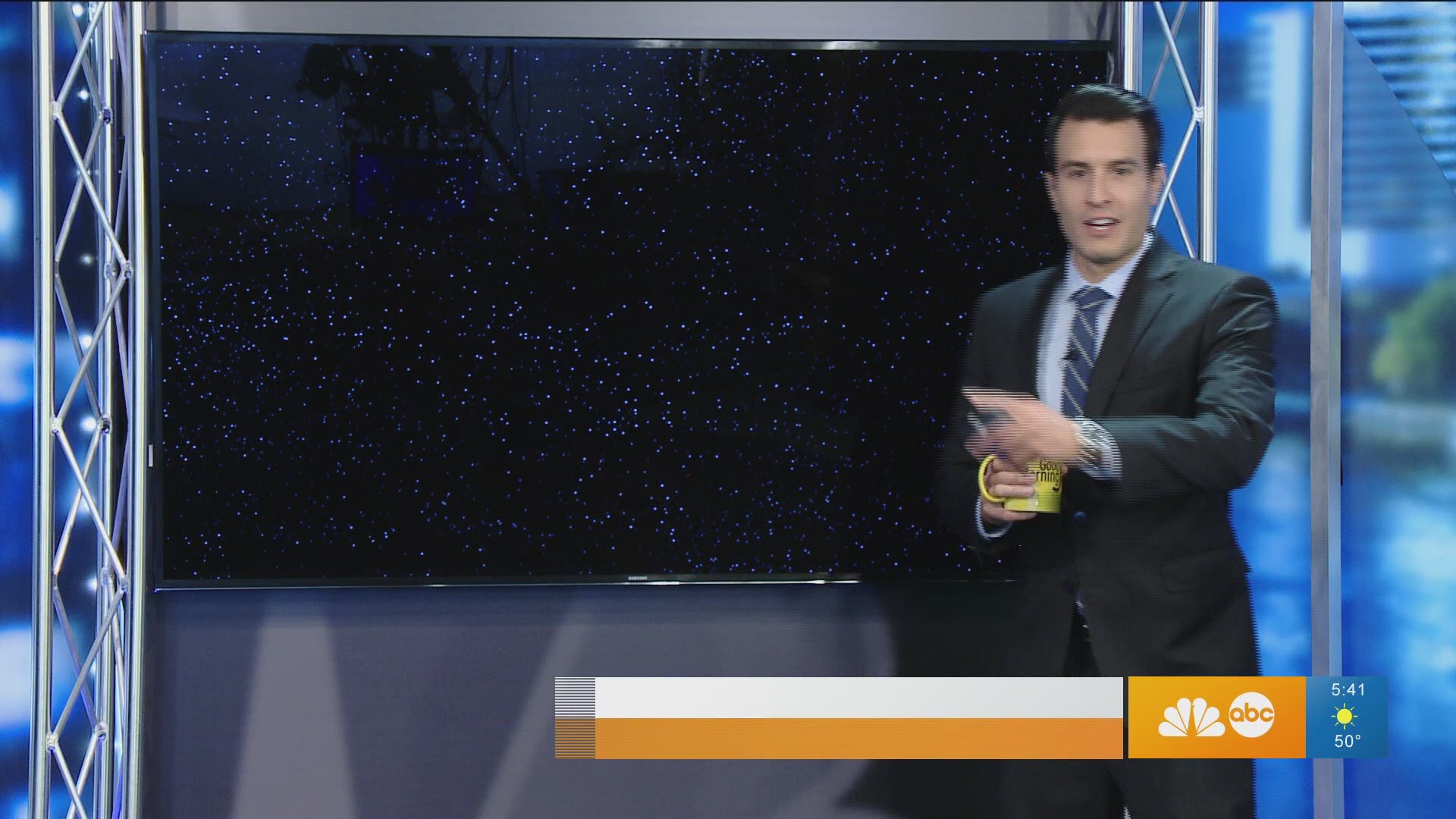JACKSONVILLE, Fla — CALLING ALL STARGAZERS!
A brief window will open on Thursday night for the chance to witness one of our solar system's greatest shows. According to the American Meteor Society, if you're on the right part of Earth, and are looking at exactly the right time in a dark, clear sky, then you might be lucky enough to experience a brief, yet intense outburst of meteors.
Known as alpha Monocerotids, this meteor shower is normally considered to be minor. However, it's expected to be more pronounced in 2019. Keep in mind this event typically only lasts about half an hour. It could be quite a show, though, with an estimated rate of 400 meteors per hour.
The meteors radiate from Monoceros, a faint constellation that is Greek for... you guessed it... unicorn!
It's located just to the left of the well-known constellation Orion.
WHAT IS A METEOR SHOWER? Meteor showers occur when Earth passes through the debris field left over by an asteroid or comet.
HOW CAN I SEE THE ALPHA MONOCEROTIDS?
- WHEN: Thursday, November 21
- Plan to be in position by 11 p.m.
- The meteor shower is expected to peak by 11:30 p.m.
- WHERE: Look east
- If you want to make sure you are looking in the right spot in the sky, start by finding Orion's Belt. The alpha Monocerotids originate just below and to the left of it. They appear to fall out of the constellation Monoceros.
- LENGTH: 15 to 40 minutes
WHAT ABOUT THE FORECAST? The weather should cooperate this time around! Skies should be mostly clear and, with a light east breeze, temperatures will be in the upper 50s. In addition, the skies will be nice and dark because the 22%-illuminated crescent moon won't rise until after 2 a.m.
OTHER TIPS: You won't necessarily need any binoculars or a telescope. It's usually best, if you can, to give your eyes about 15 to 30 minutes to adjust to the night sky. And, of course, it's best to be in an area away from any city or neighborhood lights.
LAUREN'S VIEWING SPOT? Anywhere along the beaches!

